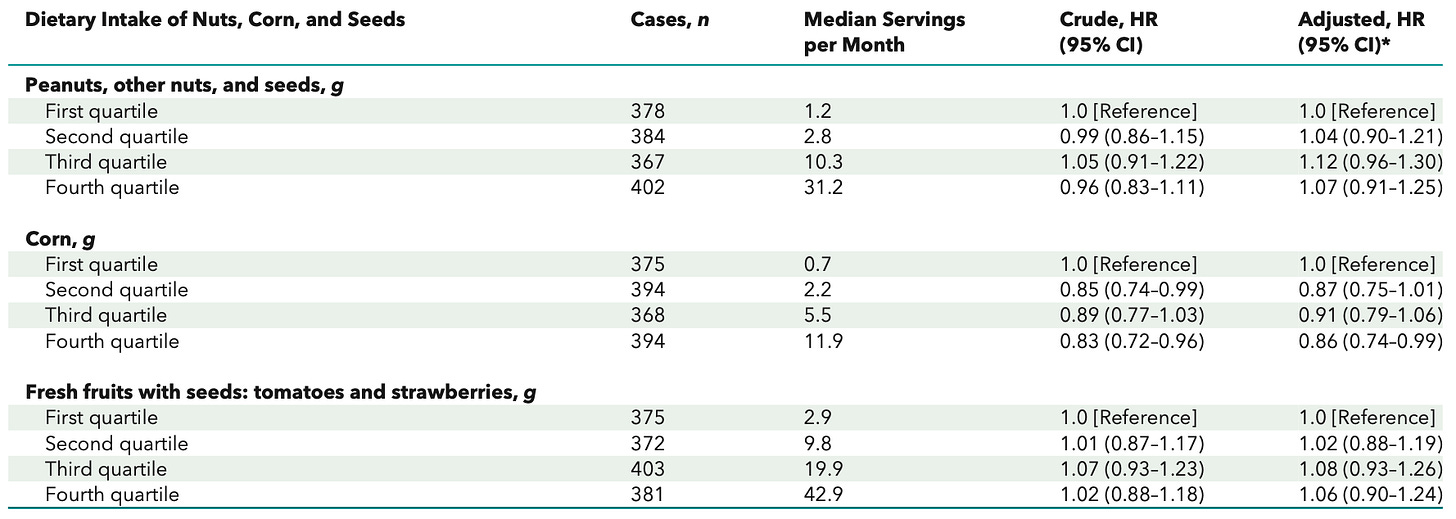Do Classic Dietary Restrictions Matter for Diverticulitis?
It's OK to forage for nuts and berries.
One of the traditional teachings in diverticulitis – and, by “traditional”, I include just about anything I was taught in the Late Middle Ages when I was in medical school – is to keep to a “low residue” diet, and avoid nuts and seeds.
Like a lot of things taught back then (and, sadly, still many things taught today), the evidence relied upon was not rigorously derived or revisited as the etchings on stone tablets were handed down from generation to generation.
This study performs a secondary analysis of The Sister Study, looking at ongoing data being collected from an original cohort of 50,884 women enrolled between 2003 and 2009. There were 29,916 respondents to the most recent questionnaire, which included a question regarding incident diverticulitis. The summary table, looking specifically at non-“low residue” foods and recall of diverticulitis is here:
Obviously, studies like this are subject to recall biases, as well as other potential unmeasured confounders affecting diverticulitis risk within the populations outside of diet choices. However, it is probably reasonable to downplay any “low residue” dogma, and place the onus on further evidence generation to support such recommendations.

